When you’re in the market for a new set of tires, finding the right balance of performance, safety, and durability is crucial. That’s where the Pirelli Cinturato P7 All Season Plus comes in.
Whether you’re commuting on highways or navigating city streets, these tires promise to deliver a smooth, quiet ride and long-lasting tread life.
In this article, I’m going to share my thoughts on the Pirelli Cinturato P7 All Season Plus, based on my experience and feedback from others who have tried them. If you’re thinking about upgrading your tires, stick around—this might be the perfect choice for you.
My Experience With Pirelli Cinturato P7 All Season Plus
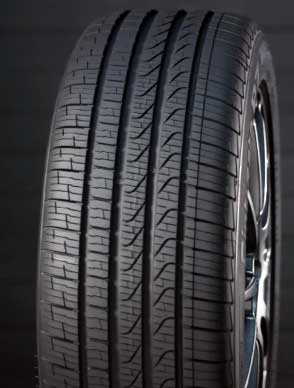
The first time I fitted the Pirelli Cinturato P7 All Season Plus on my car, I immediately noticed a difference.
The ride felt more controlled and smoother compared to my old tires.
These tires are engineered for high performance while still maintaining all-season versatility, and that balance is noticeable right from the start.
The handling was precise, even on wet roads.
I felt like I had more control, and I didn’t have to worry about slipping or hydroplaning.
The sidewalls are sturdy, and the tires are designed to give you that “on-rails” feeling when cornering.
This gave me a sense of security, especially during heavy rain.
- What Stood Out
One feature that really sets these tires apart is their reduction in rolling resistance. The tire promises up to a 15% improvement, which means better fuel economy. After driving for a while, I did notice that my car was more efficient, which is a huge plus in this age of rising fuel prices.
The quieter ride is also something to mention. These tires claim to reduce road noise by about 5%, and while it may not sound like a big difference, it’s noticeable. The quieter cabin makes for a more enjoyable drive, especially on longer trips.
You don’t realize how much noise your tires contribute until you try a set that does a better job of keeping things peaceful.
Pros of Pirelli Cinturato P7 All Season Plus
Here’s where these tires truly shine—there are many positives to share based on my experience and research.
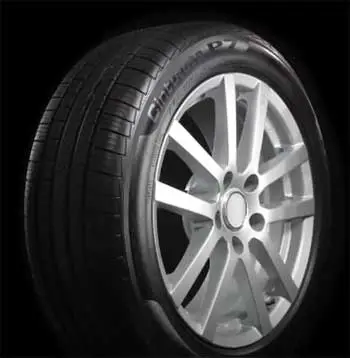
- Excellent All-Season Performance: The Pirelli Cinturato P7 All Season Plus lives up to its promise of high performance in all weather conditions. I’ve driven in rain, light snow, and dry conditions, and these tires adapted beautifully each time. While they are not intended for extreme winter conditions, for moderate climates, they’re more than enough.
- Longer Tread LifeWith a 47% improvement in tread wear, these tires are built to last. After clocking in a few thousand miles, the tread still looks brand new. The extended tread life makes them a cost-effective choice in the long run because you won’t need to replace them as often as other tires.
- Improved Fuel Efficiency: The reduced rolling resistance translates to better gas mileage, something any driver can appreciate. I noticed an improvement in my fuel efficiency, which was a pleasant surprise. This isn’t just a marketing gimmick—it really does make a difference on long drives, especially if you’re commuting daily.
- Reduced Road Noise: If you’ve ever driven on noisy tires, you know how tiring it can be. The Pirelli Cinturato P7 All Season Plus does a great job of keeping the cabin quiet. The 5% reduction in road noise may seem minimal, but you can definitely feel the difference, especially on highways.
- Eco-Friendly Design: Pirelli uses 6% fewer raw materials to manufacture these tires, making them a more environmentally responsible option. It’s nice to know that you’re not only getting a great tire but also contributing to a greener planet.
Cons of Pirelli Cinturato P7 All Season Plus
No product is perfect, and the Pirelli Cinturato P7 All Season Plus has its downsides as well.
- Not Suitable for Harsh Winters: While these tires perform well in light snow and cold weather, they aren’t designed for heavy winter conditions. If you live in an area that experiences harsh winters, you may want to consider switching to dedicated winter tires during the colder months.
- Pricey: These tires can be on the expensive side, especially compared to budget brands. However, considering the performance, fuel efficiency, and longevity, I think the investment is worth it in the long run. Still, if you’re on a tight budget, the upfront cost might give you pause.
- Initial Tread Wear May Vary: While the overall tread life is impressive, some users (myself included) have noticed that the tread wear can be uneven in the first few hundred miles. However, after a few rotations, the tread seems to even out and becomes more consistent over time.
How To Maintain Your Pirelli Cinturato P7 All Season Plus Tires?
Like any other tire, proper maintenance is key to extending the life of your Pirelli Cinturato P7 All Season Plus tires. Here are some tips that have worked for me:
- Regular Tire Rotations: Tire rotations are crucial for maintaining even tread wear. I try to rotate my tires every 5,000 to 6,000 miles, and I’ve noticed that this helps keep the tread consistent across all four tires.
- Monitor Air Pressure: Make sure you’re checking your tire pressure regularly. Under-inflated tires wear out faster and negatively affect fuel efficiency. I check mine every few weeks to make sure they’re inflated to the manufacturer’s recommendations.
- Alignments and Balancing: A proper alignment is essential to getting the most out of your tires. After installing these tires, I made sure my wheels were properly aligned to avoid uneven wear. Balancing is also important, especially if you start noticing any vibration while driving.
- Inspect for Damage: Every now and then, I give my tires a once-over to look for any nails, punctures, or other visible damage. Catching a problem early can save you from having to replace the tire prematurely.
Comparing The Pirelli Cinturato P7 All Season Plus With Other Brands
It’s always useful to know how a tire compares to other brands, especially when you’re making a decision that involves both performance and budget. Here’s how the Pirelli Cinturato P7 All Season Plus stacks up against three other popular all-season tires: Kumho Solus TA31, Waterfall Eco Dynamic, and Vredestein Hitrac.
- Kumho Solus TA31 Tire
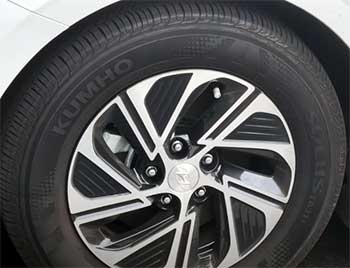
The Kumho Solus TA31 is often praised for its affordability and decent all-season performance.
It’s a great option if you’re on a tight budget. However, the Kumho Solus TA31 does have some trade-offs.
While it provides a comfortable ride and decent handling in dry and wet conditions, it doesn’t offer the same level of fuel efficiency or longevity as the Pirelli Cinturato P7 All Season Plus.
The Pirelli stands out with its 15% reduction in rolling resistance, which can save you money on gas over time. The 47% better tread wear of the Pirelli also means you’ll be replacing your tires less frequently.
If you’re looking for a more durable and fuel-efficient option, the Pirelli is the clear winner, though the Kumho offers a lower initial price.
- Waterfall Eco Dynamic Tire
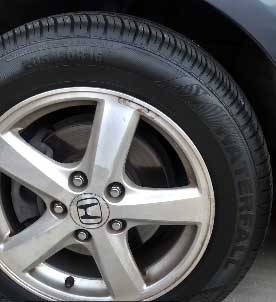
The Waterfall Eco Dynamic is marketed as an eco-friendly, budget tire, and it does deliver in terms of cost savings and environmental benefits.
However, when compared to the Pirelli Cinturato P7 All Season Plus, the Waterfall tires don’t quite measure up in performance.
While the Waterfall Eco Dynamic offers decent handling in dry conditions, its wet traction and overall tread life are not as impressive.
Pirelli’s All Season Plus tires outperform the Waterfall Eco Dynamic in both wet conditions and tread longevity, making them a better option if you live in areas where rainy weather is common.
The Pirelli tires also provide a quieter ride, thanks to their 5% reduction in road noise, which is something the Waterfall tires don’t focus on as much.
- Vredestein Hitrac Tire
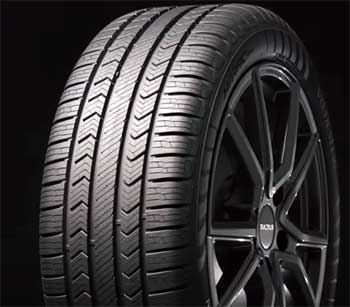
The Vredestein Hitrac is a strong competitor, especially if you prioritize comfort and wet performance.
These tires are known for their excellent handling in wet conditions and offer a quieter, more comfortable ride than many other tires in the same category.
However, where the Pirelli Cinturato P7 All Season Plus pulls ahead is in fuel efficiency and longevity.
While the Vredestein Hitrac does offer good all-weather performance, it doesn’t match the fuel-saving benefits of the Pirelli’s reduced rolling resistance.
Additionally, the Pirelli has a longer tread life, thanks to its advanced engineering aimed at extending wear.
So if you’re someone who clocks a lot of miles or values better gas mileage, the Pirelli Cinturato P7 All Season Plus may be the better long-term investment.
Frequently Asked Questions (FAQ)
The Pirelli Cinturato P7 All Season Plus tires have an extended tread life, thanks to the 47% improvement in tread wear. Under normal driving conditions and with proper maintenance, these tires can last anywhere from 50,000 to 70,000 miles.
Pirelli states that the Cinturato P7 All Season Plus tires are designed to last up to 70,000 miles, depending on your driving habits and how well you maintain the tires.
Yes, the Pirelli Cinturato P7 All Season Plus tires are designed to reduce road noise by 5%, providing a quieter ride, especially on highways and during long drives.
Absolutely! The Pirelli Cinturato P7 All Season Plus is a high-performance tire that excels in all-season conditions, offers longer tread life, and improves fuel efficiency. While they come at a premium price, the quality and durability make them worth the investment.
Wrapping Up
After months of driving on the Pirelli Cinturato P7 All Season Plus, I can confidently say that they live up to the hype. These tires offer a comfortable ride, long tread life, and impressive fuel efficiency. While they may not be ideal for harsh winter conditions, for most drivers, they’re a solid choice.
If you’re looking for a tire that balances performance, safety, and durability, the Pirelli Cinturato P7 All Season Plus should be at the top of your list.

